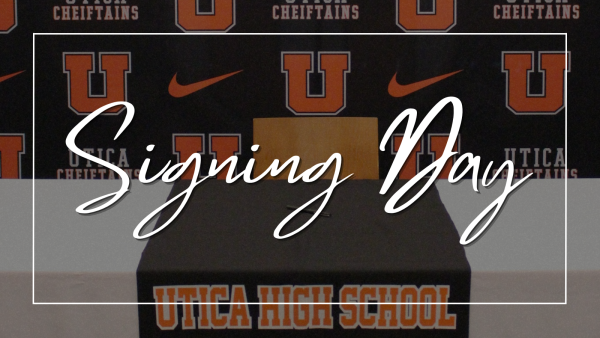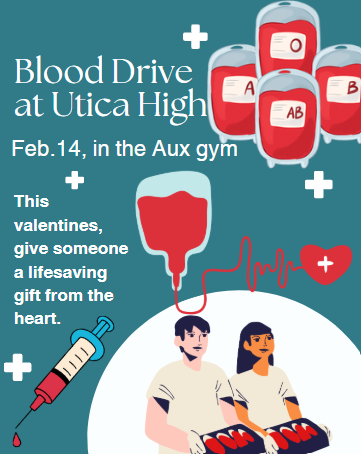Online bullying becomes anonymous
Throwing a punch face to face is quickly becoming a thing of the past, as bullies have been taking advantage of social media sites such as Twitter or Ask.fm to sling their hurtful and psychological threats.
Recently, cyber bullying has been taken to a whole new level as individuals have been hiding behind dummy accounts. Utica Community Schools is not immune, as anonymous students from every district high school have been making anonymous Twitter accounts for the purpose of putting down other students, posting hurtful or private things.
According to dosomething.org, nearly 43 percent of students have been bullied online, and 70 percent of students have reported seeing frequent bullying online. These numbers may be so high because 81 percent of young people think it’s easier to get away with online bullying than bullying in person.
Studies also show that girls are twice as likely to be victims of cyber bullying than boys. Twitter accounts created to insult others frequently target girls, utilizing hurtful words.
“The things that were posted about me brought me to my lowest,” junior Emily Carro said. “I felt like I was worthless because they pointed out my every flaw.”
The psychological and emotional harm from cyber bullying can be just as harmful as physical bullying. Furthermore, the traumatic effects of online bullying are often more severe than private bullying, because the words are broadcasted for everyone to see.
“Everyone thinks it’s funny,” junior Emily Binkowski said, “until the harmful things said are about them.”
Over the last year, more than 1 million children were harassed or threatened on Facebook. Constant access to technology has made bullying easy and anonymous.
“One little word is like a snowflake,” senior Brianna VanderVeen said. “That then starts an avalanche. All these words being said about others for no reason is starting to get out of control.”
This issue hits home with VanderVeen because her brother has been cyber bullied in recent months in online chat rooms.
“He is doing fine, and it has not affected him in any traumatic way,” VanderVeen said. “But he is young and growing up. These words that are being said to him have an effect, and it hurts to see it happening.”
Anonymous Twitter accounts such as “Utica Crushes” and “Utica Couples” target students, posting hurtful things, sometimes alluding to something a student has done.
The trend began with one account, “Utica Talk,” which was eventually taken down by Twitter after numerous reports of vulgarity. However, more and more accounts keep surfacing.
Not all tweets are posted by the anonymous account owner. Many ask for contributions, and students direct message the account so others can be featured in posts.
One of the Twitter accounts links with Ask.fm, a website where people can post whatever they want about a person anonymously. Ask.fm has strongly contributed to the online bullying trend. Students repeatedly check these sites to see what their peers are posting about them, but they don’t always expect to be bullied.
“Some are mean, some are nice,” junior Laurita Mansour said. “But either way, all of it just gets annoying at the end of the day.”
In order to offset negative posts that were being said about students, an anonymous student created the account “Utica Loves.” This account only tweets positive things about students.
“I like the fact that the ‘Utica Loves’ account is also anonymous,” VanderVeen said. “It shows they do it because they want to make people happy, and not just for the attention of it.”
Throughout the halls, more students have been talking about the “Utica Loves” account more than the other harmful accounts. “Utica Loves” currently has 217 followers, and the numbers are increasing each day.
“The reason I created this account is because all of the mean accounts really frustrated me,” “Utica Loves” account owner, who chose to remain anonymous, said. “No one was doing anything about it, so I took matters into my own hands and decided that I was going to make people feel better about themselves, instead of putting them down like all of the other accounts were doing. I call this fighting fire with flowers. Saying mean things back would only have caused a bigger reaction.”
Each account has an impact on students, especially since teenagers are constantly connected to social media through their phones.
“We only have so much time in this world to be remembered by,” VanderVeen said. “If you want to be remembered for bullying people from anonymous Twitter accounts, then that is pretty pathetic.”







